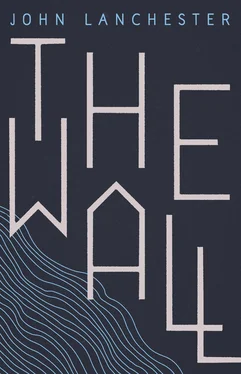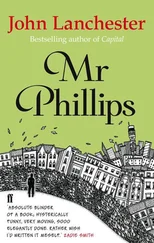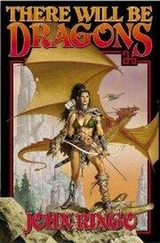Out of thirty Defenders in our company, only we seven in this barracks room had survived. We spent quite a lot of time trying to work out how many Others had got over the Wall and got away. Two people carriers’ worth, was the general view. The third vehicle was fried by Hifa. Say eight to ten Others per vehicle. In the chaos and fighting, though, maybe the escape vehicles weren’t full. Maybe one of the drivers had panicked, driven away with the car empty. It was tempting to imagine … say, one car empty, only three people in the second car … that would mean only three of us had to be put to sea. Or if the Others had been lucky and we had been unlucky, both cars had been full and twenty of them might have got over the Wall, so we’d all be going to sea. No way of knowing. But my hunch was that those cars had been pretty full. A lot of Others had been seen running across the Wall.
The extent of the conspiracy, the level of organisation, the planning and resources involved – it was hard to get my head around it. If the breach had happened to a different company I would have been fascinated by the details. But you know what they say: when it’s someone else, it’s theory; when it’s you, it’s practice – and practice is very different from theory. And at the same time, the unique circumstances of our breach, the scale of the planning and the scale of the treachery, gave me moments when I did something stupid: I entertained a tiny hope. We talked it over and nobody could remember a breach that had involved people working with Others. Nothing like this – the breach, the assistance from within, the Captain’s betrayal – had ever happened before. An extraordinary event would demand an extraordinary response. Mercy might be shown. Maybe. My head knew that this was very very unlikely, and that entertaining any hope would cost me dear when hope was taken away. But my heart couldn’t stop itself. I wanted to be with Hifa, decades in the future, old people, much older than our parents were now, looking back at this terrible crisis from a safe happy afterlife, the moment when we nearly lost everything but were forgiven and brought back under the big safe all-embracing blanket of life behind the Wall. I couldn’t resist the temptation of hope.
Every day or two I would be taken for interrogation. It happened to all of us in turn. The routine varied: armed Defenders would come and ask for us by name, or we’d be called to the door over the loudspeaker, or people would just come in, set up at one end of the room and start asking questions. The same questions, over and over, about what had happened that night, about what we had seen and what we had done. There were also questions about what had happened before, and questions about the Captain – lots and lots and lots of questions about the Captain. What did he do that night, where was he that night, where was he on previous nights, what had we noticed about him, what did he say, what did he usually do, what did he do that tour that was different, what did we think about him, on and on and on. Did he ever talk about his life away from the Wall, did he have friends on the Wall, what else did we know about him?
After four weeks we were put in a lorry again and driven to a town and put in cells – separate cells. There was a small high barred window and a toilet in the corner of the room with a washbasin next to it. I spent a day and a night there. Then two Defenders came and led me into a room with a long table at one end. Five senior Defenders sat behind it. I was marched to the front of the room opposite them and asked if there was anything I wanted to say before I heard the sentence. I already knew there would be no trial, that wasn’t the way it worked. That flicker of wishful thinking which I’d stupidly allowed myself did not survive standing in this room and looking at these pale solemn closed faces. Hope is a mistake.
‘Is there anything I can say that would make any difference?’ I asked. They didn’t seem to be expecting to be asked that and the officer in the middle, the senior one, looked from side to side and muttered something to his colleagues before turning his head back to me.
‘No,’ he said. I shrugged.
‘Then, no,’ I said, though I was tempted for a moment to say that I knew all the details of how the Others had done it, their secret network of supporters, just to see what would happen. I thought of something. ‘One thing, though: how many of them got over the Wall?’
It was obviously irregular to ask questions, but the man in the middle thought it over for a few moments and decided to answer.
‘We aren’t sure but we think it was sixteen. Fifteen or sixteen.’
That made it the worst breach in many years. It would be untrue to say this made me feel better, because it was still a death sentence, but it did make me take it less personally. It was a huge thing that had happened and we had been caught up in. I nodded to show that I was ready for what was coming.
‘Joseph Kavanagh, you failed in your duty as a Defender, and you will be put to sea. May God have mercy on you,’ said the senior Defender. ‘Take him back to the cells.’
The third night at sea, I saw some lights in the far distance as we bobbed up to the top of a swell. I wasn’t sure I could believe my own eyes, the first time I caught a glimpse of them; your mind sometimes plays tricks on you when you’re on the Wall, but on the open sea, it’s worse. You have no physical equilibrium in a small boat, and it can feel as if your mental equilibrium goes too. You can’t trust your senses, and you can trust your imagination even less. You try to pin your mind down to the specifics of the moment. But it’s hard. You hear things, you see things. The wind carried voices, fragments of song – not music in general, but specifically song, voices in chorus. I often thought I was hearing someone call my name. Clouds in the distance coalesced as land, as hills, before fading back into cloud. So my first thought when I saw the lights was, I’m probably imagining it. I’m not used to a black this complete; on the Wall we had the lights along the guard posts. Here, until the moon comes up, it’s blind-black. So maybe my synapses were firing weirdly, unused to a dark so final. Then, seconds later, on the crest of another rise, I saw them again. And then, a minute or so later, a third time, more clearly and more definitely than before. Lights on the open sea.
We had talked about this: what to do, what calculations to make, if we saw evidence of other boats. The plan had been to row towards them and look for signs of whether they were benign or not. By daylight that felt as if it made sense. At night, less so. We had no weapons and our only defence if we came under attack would be to try to get away as fast as possible. Given that we only had one set of oars, that wasn’t very fast. A boat with lights was either a Coast Guard boat or a boat of Others so confident that they weren’t worried about being seen. That meant that they were either stupid or well armed. Either was dangerous.
The swell was two metres or so, not enough to be frightening, but more than enough to be uncomfortable. It was the swell which made it hard to be certain about the lights; they winked into view at the top of each wave and then disappeared again as we went down into the trough. Everyone else in the boat was asleep. It was a lifeboat, or it had been. A waterproof awning covered the back half of the boat, and that’s where the others were sleeping. It was also where our food supplies were stored. The water tanks and water catchment traps were in the front of the boat, with me.
I wanted to wake someone up to talk about what we should do. Hifa would under normal circumstances have been the obvious choice, but she had been seasick for two days – not feeling-queasy seasick, but repeatedly vomiting in a way which would be genuinely dangerous if it kept on – and had only just gone to sleep. It would not be the right call to wake her up. I chose Hughes. He was the only other person I trusted and he had done a little sailing with an uncle in his childhood, so he wasn’t as ignorant about boats as I was. By which I mean: he knew almost nothing, but I knew nothing-nothing, so he won. It felt like a desperate thing to be doing, to rely on the tiny amount he knew about the sea, but there was no choice. I bent over double to get under the awning and into the back of the boat. You learnt the hard way to be careful when you did that, because if you brushed against the roof you were likely to get several litres of water decanted onto you. I shoved Hughes with my foot, then again, and he woke up. I held my fingers to my lips. He sat up and crawled out of the sleeping space. There was just enough starlight to see that he looked terrible, his lips cracking with salt and his face abraded red with the sea winds. I realised I must look like that too.
Читать дальше












